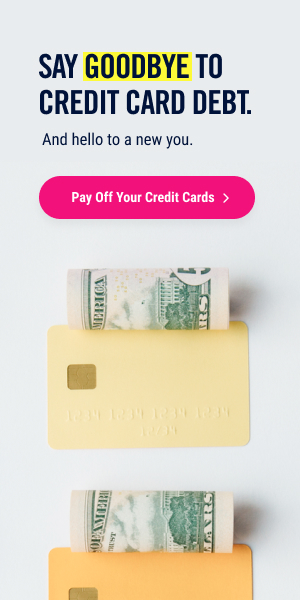Plan to use a credit card to pay for your wedding? Getting married is expensive, so read this before you whip out the plastic for your big-day expenses.
I have a confession to make: We paid for our wedding with a credit card.
It was the end of a beautiful evening. We exchanged vows, danced, ate ridiculously good food and celebrated with our family. As we were preparing to head out, our venue asked us for the check. I turned to my new husband, since the money we’d been saving to pay for the wedding was in his bank account.
“Um, it’s still in savings …” he admitted. “Also, I didn’t remember to bring my checkbook with me, and my wallet’s at home.”
We had a $900 bill to pay and zero money. As we scrambled to figure out what to do, our brother-in-law came over offering to put it on his credit card. After calming my insistent pleas that he didn’t have to do it, he went to the business office and settled our bill.
“It’s no big deal,” he said. “I know you’ll pay me back, before interest is charged.”
He knows us ridiculously well. He picked us up from the airport when we got home from our honeymoon, and we wouldn’t let him leave until we had run upstairs to write the check in full.
There’s a Responsible Way to Charge Your Nuptials
Our story of charging our wedding isn’t far from the norm. In fact, according to a recent study conducted by The Knot and PayPal, 36% of couples paid for at least part of their wedding with a credit card.
That’s not necessarily a terrible option, as long as you’re smart about it. Some couples pay off their balance before interest can accrue, like we did, and others use the big wedding bills to earn rewards points, cash back or miles that allow them to travel for free on their honeymoon.
What’s most important is that you and your bride- or groom-to-be agree on a strategy beforehand and have a plan in place to pay the balance in the timeframe you want, and at the interest rate (if applicable) you want.
But There’s an Irresponsible Way Too
Unfortunately, among those who charge part or all of their wedding, responsible use is not the norm. Twenty-one percent of all couples charge more than they can afford on the day meant to celebrate their love, a commodity which you ironically can’t buy. According to a survey conducted by The Knot, the average wedding costs $31,213. If that’s well above what you can afford, you have a recipe for debt disaster.
Let’s conservatively look at the numbers. Say you charged $10,000 for your wedding on a card that has a 21.99% interest rate. If you made only the minimum monthly payment of $400, you’d be paying that sucker off for 15 years and 4 months. Find out how much charging your wedding could cost you by using this calculator.
Don’t Let Wedding Debt Spoil Your Big Day and Beyond
Four hundred dollars per month is a lot of money for most American households. Let’s say you miss a payment and fall behind. A delinquency as short as 30 days can leave a ding on your credit score, making it harder for you as a couple to obtain loans for things like cars and homeownership.
Even if you never miss a payment, creditors don’t just look at delinquency. They also look at your existing debt, especially if you’re applying for a mortgage. If you have a $400 payment every month, that’s $400 of your income that financial institutions can reasonably assume won’t be going toward your housing.
Your available credit is also taken into account when calculating your credit score. That means that if your credit limit was $10,000 to begin with, you’ll be starting your marriage with 100% credit utilization, leaving few lenders willing to loan you more money. Here’s a great article to read if you want to know more about mortgages and credit scoring issues.
Spend Wisely to Enjoy Your Happily Ever After
Before spending outside your budget on your big day, seriously consider the worthiness of each line item. Throwing an epic party for family and friends may be a once-in-a-lifetime experience, but it could also be an experience you’ll be paying off for a good portion of your life.
If you and your spouse-to-be haven’t yet had a thoroughly transparent conversation about your respective finances, including debts either one of you brings into the marriage, consider getting all your money questions out in the open before walking down the aisle.
And while you don’t have to worry about your partner’s debts becoming your own once you’re married, debt can be a very real presence in a marriage and something you definitely want to have a plan for how to tackle together.
Ask yourselves, “What does spending consciously on our big day look like to us?” to make sure you get that happily ever after in your new life together.
Written by Brynne Conroy, who blogs at Femme Frugality


